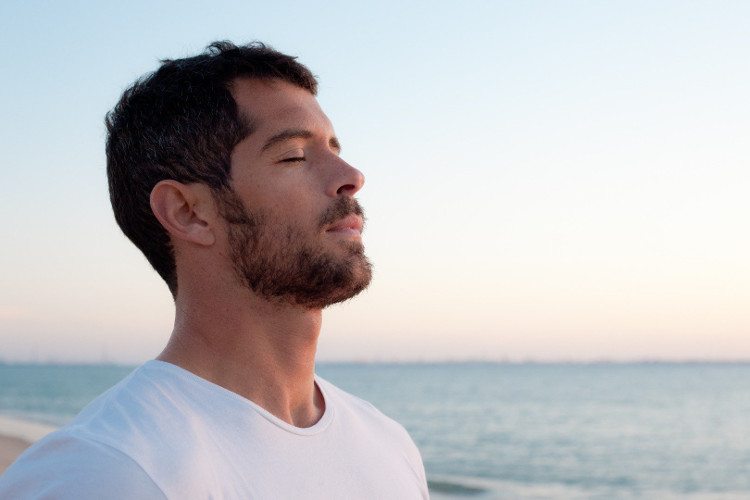Breathing deeply helps to reduce anxiety and stress
If you are constantly in a state of anxiety and anxiety, you may have formed a habit of improper breathing, which has reduced your health.
Breathing is instinctive, "boring" action that we repeat every second, every minute to ensure life. Proper breathing also enhances health, regulates emotions in the most positive direction.
Few people realize the connection between inhalation and exhalation associated with mood. When we are tired, we often feel restless, breathe in each breath, then exhale hastily, quickly. But when the mood was relaxed, the body breathed slowly, taking a deep breath and exhaling slowly.

Breathe deeply for good health.(Photo: Diyp).
Studies show that this is the general condition of many people, in which emotions affect the way we breathe.
Rapid breathing demonstrates symptoms of tension, anxiety leading to loss of breath control, which in part affects how we feel things. In a calm, relaxed state, we will breathe slower and deeper. However, according to Scienalert, most of us tend to breathe the wrong way, adversely affecting the body. Even millions of people on the planet are breathing the wrong way.
"For many people, deep breathing seems unnatural. There are many reasons, among them, the view of physical beauty negatively affects respiration. Like flat stomachs are considered attractive to women ( and even men) have a tendency to practice abdominal muscle development, which hinders deep breathing and gradually turns to shallow chest breathing habits , " Harvard Medical University blog article. (America).
In 2012, a study of 46 artists both male and female with short-term training in deep breathing and biofeedback, the team realized that, after 30 minutes of slow breathing, people had reduced their anxiety symptoms. This is even more pronounced for musicians and counterparts who tend to fall into anxiety.

Feelings affect the way we breathe.
These benefits are more effective for more serious cases. In 2014, researchers had a small test for veterans of post-traumatic stress.
The results showed that those who practice meditation with regular breathing, 3 hours deep every day, continuously for a week significantly improved symptoms of stress and anxiety.
If you want to practice breathing properly to regulate your body, prepare everything and do it right away. First, find a well-ventilated, quiet place and sit or lie down. Then, inhale slowly through the nose, allowing the chest and abdomen to expand. Finally, exhale slowly through your mouth or nose.It will be helpful to just count and breathe smoothly.
- Working hard will help reduce the risk of stress
- Benefits of deep breathing
- A simple way to beat stress within 3 minutes
- Simple breathing techniques help you relieve psychological stress right away
- Swimming helps the brain stay healthy and reduce stress, fatigue
- Is there a mate or anxiety? Easy to die soon
- Reduce stress by bottled air
- How to 'psychological massage' helps you relieve stress within 5 minutes
- Detecting chewing plants to reduce stress, hunger
- Video: What will your lungs do if you breathe deeply?
- 'Close up' smart shirt helps reduce stress
- Smart device to help you reduce stress
 Green tea cleans teeth better than mouthwash?
Green tea cleans teeth better than mouthwash? Death kiss: This is why you should not let anyone kiss your baby's lips
Death kiss: This is why you should not let anyone kiss your baby's lips What is salmonellosis?
What is salmonellosis? Caution should be exercised when using aloe vera through eating and drinking
Caution should be exercised when using aloe vera through eating and drinking